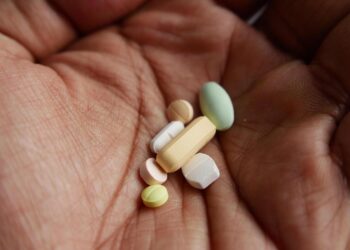If you’ve recently had a blood test that shows high creatinine levels, it could be a sign that your kidneys are not functioning as they should. Creatinine is a waste product produced by your muscles and filtered out of the body by the kidneys. When these levels are elevated, it may indicate impaired kidney function — a condition that requires timely medical attention. Consulting a Nephrologist In Chennai can help you understand the underlying cause and guide you toward proper treatment and lifestyle changes.
Understanding Creatinine and Its Role
Creatinine is a byproduct of muscle metabolism. Normally, your kidneys filter creatinine out of your blood, and it leaves your body through urine. Healthy individuals maintain a stable level of creatinine in their blood. However, when the kidneys are unable to effectively filter waste, creatinine begins to accumulate in the bloodstream.
High creatinine levels are not a disease in themselves, but rather a marker of an underlying condition affecting kidney function. These conditions can range from dehydration and infections to chronic diseases like hypertension and diabetes.
What Are Normal Creatinine Levels?
Before panicking over a blood test result, it’s essential to understand what qualifies as “normal”:
- For adult men: 0.74 to 1.35 mg/dL
- For adult women: 0.59 to 1.04 mg/dL
These values can vary slightly depending on the lab and equipment used. What’s more important than a one-time result is the trend — is your creatinine level increasing over time?
Causes of High Creatinine Levels
Several factors can contribute to elevated creatinine levels. Some of the most common causes include:
- Acute or Chronic Kidney Disease
This is the primary reason behind consistently high creatinine levels. If left untreated, it can lead to end-stage renal failure. - Dehydration
Lack of sufficient fluids can temporarily elevate creatinine levels. - Certain Medications
Drugs such as NSAIDs, antibiotics, or chemotherapy agents can impact kidney function. - High-Protein Diet
Consuming a protein-rich diet or taking protein supplements may also raise creatinine levels slightly. - Intense Exercise
Strenuous physical activity can cause temporary spikes in creatinine due to increased muscle metabolism.
When to See a Nephrologist
So, how do you know if it’s time to consult a kidney specialist? The answer depends on your symptoms, test results, and risk factors. You should consider seeing a nephrologist if you experience:
- Persistently High Creatinine Levels
If repeat tests show elevated creatinine, a nephrologist can perform further evaluations. - Symptoms of Kidney Dysfunction
These may include fatigue, swelling in the legs or face, shortness of breath, and decreased urine output. - Underlying Conditions
Diabetes, high blood pressure, and autoimmune disorders are major risk factors for kidney disease. - Abnormal Urine Test Results
Presence of protein, blood, or abnormalities in urine volume warrant further investigation. - Imaging Test Findings
If an ultrasound or CT scan shows abnormalities in your kidneys, your doctor may refer you to a specialist.
Getting evaluated early by a specialist increases the chance of halting or even reversing kidney damage through medication, dietary changes, and lifestyle adjustments.
How a Nephrologist Evaluates Kidney Function
A nephrologist uses a combination of tools to understand the root cause of high creatinine:
- Glomerular Filtration Rate (GFR)
This is an estimate of how well your kidneys are filtering blood. A GFR below 60 for three months or more typically indicates chronic kidney disease. - Urine Tests
These tests check for protein, blood, and other markers that indicate kidney issues. - Imaging Studies
Ultrasound or CT scans may be ordered to detect structural problems like cysts, blockages, or shrinkage of kidneys. - Kidney Biopsy
In some cases, a small tissue sample is taken for microscopic examination to determine the cause of kidney damage.
Importance of Early Diagnosis and Monitoring
Catching kidney dysfunction early is vital. Kidney disease often progresses silently, with no symptoms until it’s quite advanced. Once kidney damage occurs, it is usually irreversible, but progression can be slowed or stopped with early intervention.
Routine monitoring through blood and urine tests, along with check-ups with your nephrologist, can help keep the condition under control. Patients are also often advised to reduce salt intake, manage blood sugar and blood pressure, and avoid nephrotoxic drugs.
Diagnostic Testing – Where to Begin
Your journey to understanding high creatinine levels starts with proper testing. Choosing the Best Diagnostic Centre Chennai can ensure that you get accurate, timely, and reliable results. From basic blood panels to advanced kidney imaging, a high-quality diagnostic facility plays a critical role in early detection and ongoing monitoring of kidney function.
Lifestyle Tips to Support Kidney Health
Whether your creatinine levels are slightly high or you’re under treatment for kidney dysfunction, adopting kidney-friendly habits can make a big difference:
- Stay Hydrated
Drink enough water to support kidney filtration but consult your doctor if you have fluid restrictions. - Eat a Balanced Diet
Reduce sodium, avoid processed foods, and moderate your protein intake. - Exercise Regularly
Low-impact activities like walking or yoga can help regulate blood pressure and sugar. - Avoid Over-the-Counter Painkillers
NSAIDs like ibuprofen can harm your kidneys if used frequently. - Monitor Your Blood Pressure and Blood Sugar
Keeping these levels in check reduces stress on the kidneys.
Conclusion
High creatinine levels are a signal that something may be wrong with your kidneys. While not always a cause for immediate concern, it’s essential not to ignore the warning signs. Early consultation with a nephrologist, particularly if you’re at risk due to other health conditions, can help prevent serious complications. Partnering with the right medical professionals and diagnostic centers empowers you to take control of your kidney health before it’s too late.






